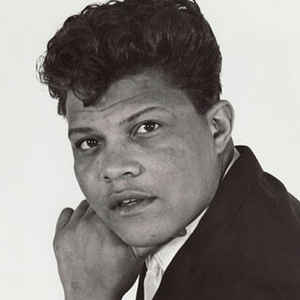 This column is the very definition of a labor of love. I’ve been writing it every week for more than five years, and I don’t think I’ve ever missed a week. I wish there was a bigger audience for the column, but I’m happy to have the regular readers that I have. There is no budget. There is no time to set up interviews with the people who made the music I write about, and I don’t have access to all the material necessary to write really comprehensive stories about the records I feature.
This column is the very definition of a labor of love. I’ve been writing it every week for more than five years, and I don’t think I’ve ever missed a week. I wish there was a bigger audience for the column, but I’m happy to have the regular readers that I have. There is no budget. There is no time to set up interviews with the people who made the music I write about, and I don’t have access to all the material necessary to write really comprehensive stories about the records I feature.
What I’m left with, in the end, are whatever online resources I can find. Wikipedia is helpful, so is AllMusic.com. Then there are the more obscure music sites that a Google search might track down. Sometimes the searches turn up very little, and yet, that doesn’t seem like a very good reason to not tell you about a great record.
Last week I wrote about a band called the O’Kaysions, who had a hit with a record called “Girl Watcher.” In doing the research for the story I could find one, and only one, comprehensive history of the band online. The author had done a great deal of research. So much so that for the first and only time in the history of this column, I gave him a co-writing credit. In truth, it’s something of a tightrope act. I want to give you as much of the story as I can, without simply copying another writer’s work. But when that writer’s work is the only thing out there on a given subject, it gets hard to determine where to draw the line.
The featured artist in this week’s column is a prime example of someone about whom very little is available online. And yet, he made some great records, and became something of a Northern Soul icon in the years after his death. So rather than just give up because I can’t learn much about Tony Clarke, and one of the joys of writing this column is learning about the artists I write about, I decided that I want you to hear some of his music and hope that it will do the talking.

Here’s what I have learned. Tony Clarke was born in New York City in 1940, but he grew up in Detroit. His earliest success was as a songwriter, penning two hits for Etta James. In 1963 her recording of Clarke’s song “Pushover” ran up the R&B chart to #7, and crossed-over to the Pop chart, reaching a peak at #25. Later that year, Clarke’s “Two Sides (To Every Story)” was a #63 Pop record for James.
Both of the James hits were released by Chess Records, and in 1965 Clarke was given his own opportunity to record for the label. He responded with his biggest hit, “The Entertainer.” The record was a Top 10 R&B hit, and peaked at #31 on the Pop chart. The B-side of the record, “This Heart of Mine,” became a big favorite on the Carolina Beach Music scene.
Clarke died a violent death in August, 1971. He was estranged from his wife at the time, and he broke into her house with a tire iron in his hand. She shot him dead in an act of self-defense. Clarke’s life ended that night, but his music lived on in the form of an obscure single that he had recorded for Chess called “Landslide.” Later in the ’70s that record became an object of devotion among those involved in the Northern Soul scene in England. Another record, “(They Call Me) A Wrong Man,” also became popular on that circuit.





Comments